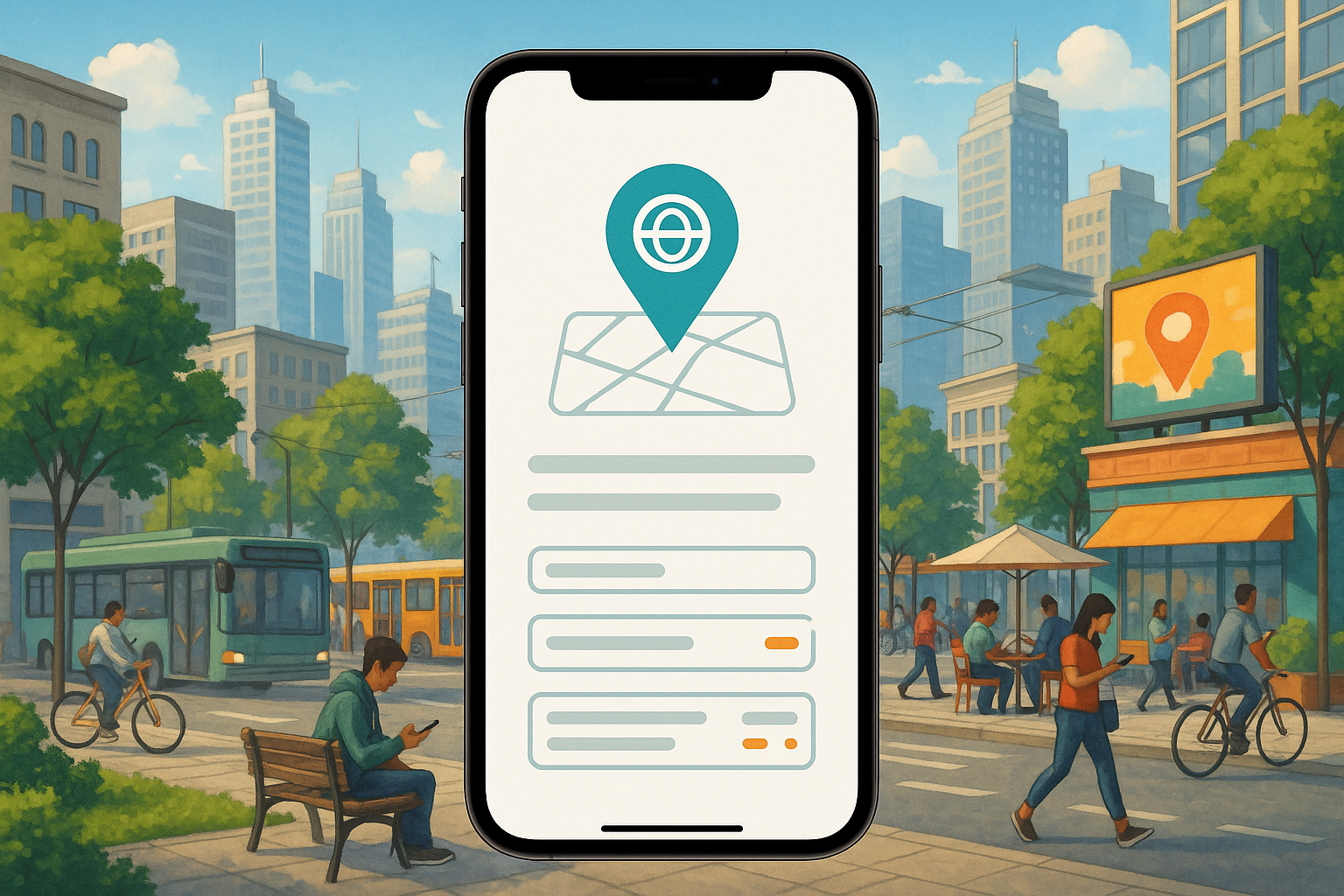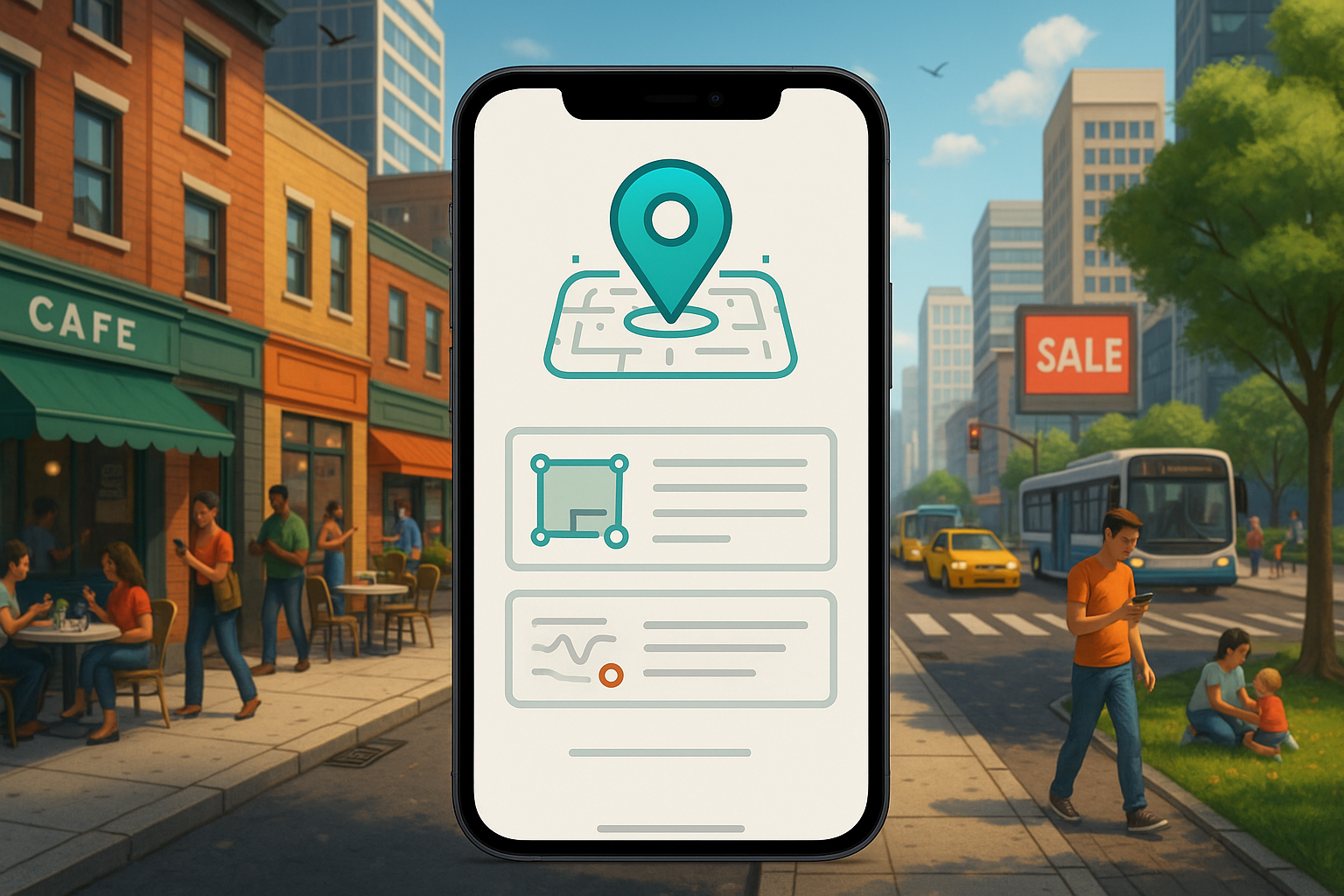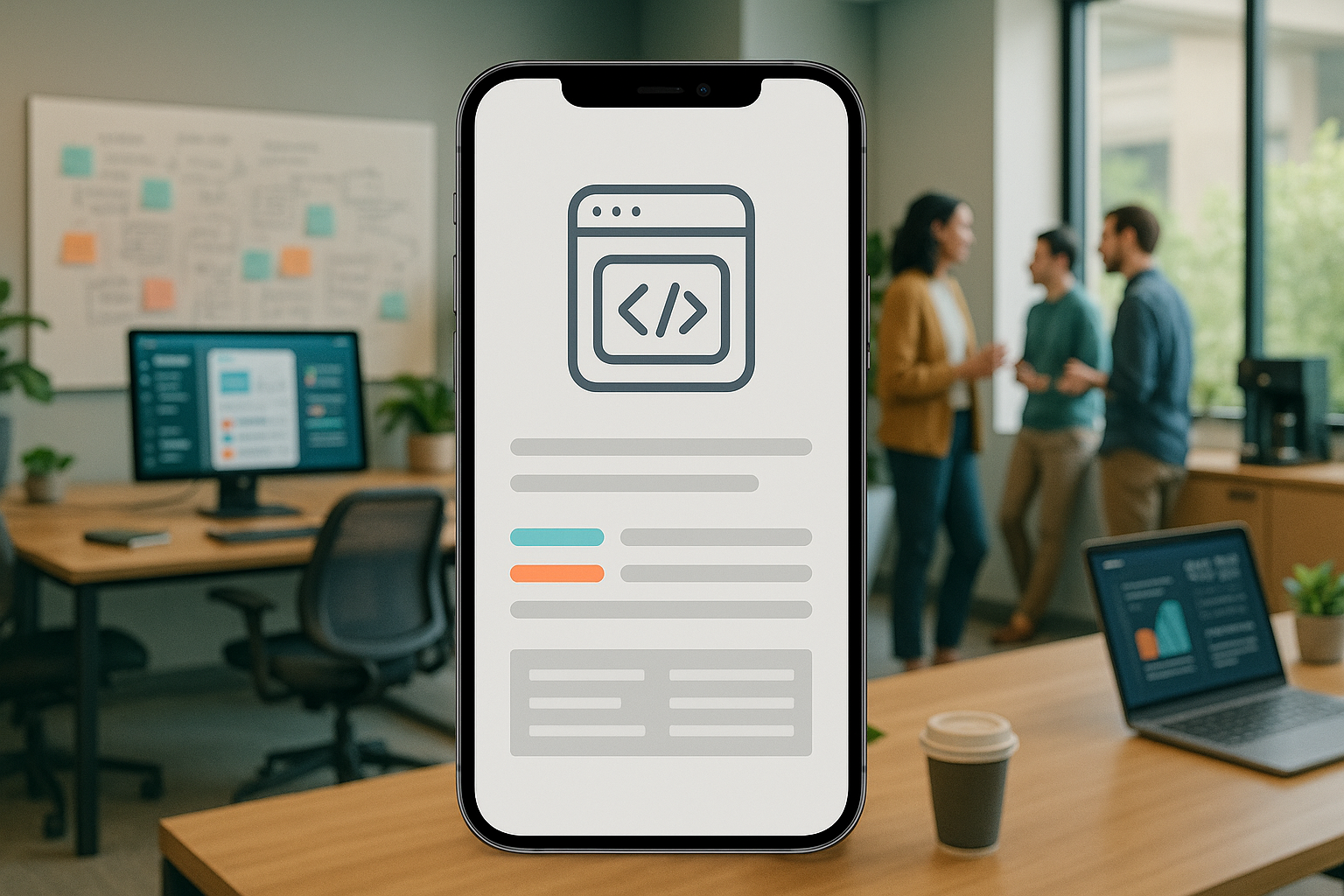Introduction
In an increasingly connected world, geolocation technology has become the backbone of countless mobile applications that simplify our lives, entertain us, and drive business growth. From hailing a ride to discovering a new restaurant or receiving a timely weather alert, location-based services are deeply integrated into our daily routines. However, for businesses and entrepreneurs looking to build the next great location-aware app, the path from concept to a successful launch is fraught with technical complexity, strategic pitfalls, and significant financial investment. The challenge isn’t just dropping a pin on a map; it’s about building a robust, scalable, and intuitive experience that users can trust.
Developing a geolocation app is far more than a standard software project. It requires specialized knowledge in GIS (Geographic Information Systems), data management, platform-specific APIs, and user privacy. The choices made early in the development process—such as selecting the right mapping platform or architecting a system to handle real-time data updates—can have long-lasting consequences on an app’s performance, cost, and viability.
This article serves as a comprehensive guide to understanding the world of geolocation app development. We will explore what defines a geolocation app, delve into the specific challenges that make in-house development so difficult, and categorize the diverse types of applications thriving in the market today. Furthermore, we will provide a transparent look at the potential costs involved and introduce you to the leading companies that can help bring your vision to life.
As a top US AI-powered app development firm with over 20 years of experience, we at MetaCTO have guided numerous clients through every stage of this complex journey. We specialize in transforming ambitious ideas into market-ready mobile apps that not only function flawlessly but also attract and retain users. Whether you’re a startup looking to launch a Rapid MVP Development or an established business aiming to integrate sophisticated location features, our expertise is your strategic advantage.
What is a Geolocation App?
At its core, a geolocation app is a software application that utilizes a user’s geographical position to deliver contextually relevant information and services. This is achieved by accessing location data from a device, typically via GPS, Wi-Fi, or cellular networks, and then using that data to trigger specific actions or provide personalized content. The service provided can be as straightforward as a simple location identification or as dynamic as a push notification from a nearby coffee shop.
The power of these applications lies in their ability to cater to the real-time needs of the users. Modern life moves quickly, and users demand immediate answers to questions like “What’s the weather like right now?”, “Is there heavy traffic on my commute?”, or “What is the best possible route to my destination?”. Geolocation apps are designed to meet these immediate needs by providing valuable, time-sensitive information. For instance, many applications offer provision with valuable information, such as weather or traffic conditions, allowing users to plan their day more effectively. A prime example is Google Maps, which not only allows users to find the best route to a stated destination but also lets them monitor traffic conditions in real-time and navigate around an area with turn-by-turn directions.
Beyond personal convenience, the use cases for location-based services are vast and varied, spanning social networking, commerce, transportation, and even security.
- Discovery and Social Connection: Apps like the Foursquare City Guide act as digital concierges, helping users discover new locations. Based on a user’s current position, the app provides corresponding suggestions for nearby eateries, attractions, and entertainment. Its sister app, Swarm, leans into the social aspect, allowing users to share their locations, check in to places, and even plan visits together with friends.
- On-Demand Services: The ride-sharing application Uber is a quintessential example of a geolocation service transforming an industry. Uber identifies a user’s location to calculate the rate for a trip, seamlessly connects them with a nearby driver, and then plans a route for the driver. Throughout the journey, it serves as an accurate navigator, ensuring a smooth experience for both passenger and driver.
- Real-Time Tracking and Logistics: Services like Glympse have carved out a niche by allowing users to share their location in real-time with others. This is useful for coordinating meetups or simply letting family know you’re safe. Glympse also allows users to share their estimated time of arrival in real-time, a feature with powerful business applications. The company offers partnerships to businesses, such as grocery delivery, to provide a better customer experience by giving customers precise tracking, which in turn helps to minimize customer rescheduling and cancellations.
- Marketing and Security: Businesses leverage geolocation for location-based marketing, offering the ability to target specific users at a precise period of time. This could manifest as a special offer sent to a user’s phone as they walk past a store. Another critical use case is in fraud prevention, where financial institutions can add a layer of security by linking a credit card with a user’s location to verify transactions.
Ultimately, a geolocation app bridges the digital and physical worlds, using location as the key to unlocking a wealth of relevant, personalized, and real-time experiences.
Reasons that it is difficult to develop a Geolocation app in house
While the utility of geolocation apps is clear, the journey of building one is lined with significant technical hurdles. Companies that attempt to develop these complex applications in-house often underestimate the specialized expertise and ongoing resources required for success. These are not standard software projects; they involve a unique set of challenges that can easily derail a project, inflate budgets, and result in a poor user experience. Partnering with a specialized custom mobile app development agency like MetaCTO can help you navigate these obstacles.
One of the first and most critical challenges an in-house team faces is platform selection. The mapping and geolocation ecosystem is populated by several powerful but distinct platforms, each with its own strengths, weaknesses, and pricing models. The choice is not trivial. For example, the fact that selecting the optimal platform between Mapbox and HERE is a challenge for EV navigation apps highlights the specificity required. An electric vehicle app needs data on charging station locations, availability, and compatibility—data that one platform may handle far better than another. An in-house team without deep experience across these platforms may choose a provider that seems adequate at first but fails to scale or support crucial features down the line. This single decision can impact everything from development time and API costs to the overall performance and accuracy of the app.
Another monumental task that is often overlooked is the necessity of managing geodata updates. Location data is not static; it is constantly in flux. New roads are built, businesses close, and points of interest change. For app owners building with a platform like OpenStreetMap, they are directly responsible for this upkeep. The fact that they must manage geodata updates themselves translates into a significant and perpetual operational cost. This requires a dedicated workflow for sourcing, verifying, and integrating new data to ensure the app remains accurate and reliable. An in-house team might be built to write code, but are they equipped to become data managers? Failing to account for this ongoing maintenance can quickly render an application obsolete and erode user trust.
Integrating these complex systems into a seamless mobile app introduces further difficulty. It requires a development team that is not only proficient in mobile languages like Swift or Kotlin but also deeply understands the intricacies of location services, battery optimization, offline map support, and data synchronization. Why is it so hard to integrate Geolocation into a mobile app?
- Battery Drain: Constantly polling for a user’s GPS location is one of the fastest ways to drain a device’s battery. Expert developers must implement intelligent location-fetching strategies, using less precise methods (like Wi-Fi or cell towers) when possible and only engaging the power-hungry GPS when high accuracy is essential.
- Accuracy vs. Performance: There is a constant trade-off between the accuracy of the location data and the performance of the app. Achieving pin-point accuracy requires more time and power, which can make the app feel sluggish. A skilled team knows how to balance these needs based on the specific use case of each feature.
- Handling Inconsistencies: GPS signals can be unreliable indoors or in dense urban environments. The app must be architected to handle spotty or inaccurate data gracefully, without crashing or providing nonsensical results to the user.
This is where hiring a development agency like us at MetaCTO provides immense value. With over 120 successful projects launched, we have navigated these challenges time and again. Our process isn’t just about writing code; it’s about providing strategic guidance. Through our Fractional CTO services, we help you make the right foundational decisions on platforms and data strategy. Our experienced development team understands the nuances of mobile operating systems and geolocation APIs, ensuring your app is not only powerful but also efficient and reliable. We transform these development difficulties from potential roadblocks into well-managed components of a successful project.
Different types of Geolocation apps
The applications of geolocation technology are incredibly diverse, touching nearly every aspect of modern life. While many apps incorporate location features, they can generally be categorized based on their primary function and the user need they fulfill. Understanding these categories can help clarify a project’s goals and identify its target audience.
1. Navigation and Real-Time Information Services
This is perhaps the most recognized category of geolocation apps. Their core purpose is to help users navigate the physical world and stay informed about changing conditions. These services cater directly to the real-time needs of the users, providing immediate and actionable information.
- Google Maps is the archetypal app in this space, allowing users to find the best route, monitor traffic conditions, and navigate around an area.
- Apps that provide valuable information, such as weather or traffic, also fall into this category. They use a user’s location to deliver hyperlocal forecasts and alerts, helping people plan their activities and commutes.
- Glympse offers a unique spin on real-time information by enabling users to share their location and estimated time of arrival with others, providing peace of mind and simplifying coordination.
- Public transport monitoring applications are another key example, giving commuters real-time data on the location of buses and trains to minimize wait times.
2. Social and Discovery Applications
These apps leverage location to connect people with each other and with their surroundings. The focus is less on utility and more on experience, exploration, and social interaction.
- The Foursquare City Guide is a prime example of a discovery app. It uses a user’s location to provide corresponding suggestions, such as nearby eateries, shops, and attractions, effectively helping users discover new locations.
- Swarm, Foursquare’s companion app, is centered on social sharing. It allows users to check in to places they visit, creating a personal history and a way to compete with friends. Critically, it also allows users to share their locations and plan visits together with friends who are also on the platform, turning location data into a social tool.
3. On-Demand Services
This category has revolutionized numerous industries by using geolocation to connect a user’s immediate need with a nearby service provider. These apps are masters of logistics, using location as the critical link in the service chain.
- Uber, the well-known ride-sharing application, is the flagship of this category. It uses a rider’s location to calculate the rate and find the closest available driver. It then plans a route for the driver and provides navigation, creating an efficient marketplace for transportation.
- The business-to-business model of Glympse also fits here. When it offers partnership to businesses, such as grocery delivery, it transforms a standard delivery service into an on-demand experience. By allowing customers to track their delivery in real-time, it enhances customer satisfaction and helps minimize customer rescheduling and cancellations.
4. Marketing and Commercial Services
Businesses use these applications to drive foot traffic, increase sales, and engage customers in the physical world. Location becomes a key data point for targeting and personalization.
- The most direct application is location-based marketing. This includes everything from sending a push notification from a nearby coffee shop with a special offer to displaying geographically relevant ads within an app. These services capitalize on the ability to target specific users at a precise period of time for maximum impact.
- Simple but effective locators of stores, restaurants, and similar places are also a vital part of this category. Nearly every major retail or restaurant brand has a feature in their app that helps users find the nearest location, view its hours, and get directions.
5. Security and Financial Services
A smaller but critically important category uses geolocation as a layer of security. By verifying a user’s physical location, these services can protect against fraud and unauthorized access.
- The primary use case is fraud prevention by linking a credit card with a user’s location. If a transaction is attempted in London while the cardholder’s phone is clearly located in New York, the system can automatically flag or block the purchase, preventing financial loss. This adds a powerful, real-world context to digital security protocols.
Cost estimate for developing a Geolocation app
One of the most pressing questions for any entrepreneur or business leader considering a new application is, “How much will it cost?” For geolocation apps, the answer is complex, as the price can vary dramatically based on a project’s scope, complexity, and the team hired to build it. Understanding the key cost drivers is essential for budgeting effectively and making informed decisions.
The development cost is primarily influenced by the time it takes to build the app, which is in turn determined by a number of key factors:
- Geolocation apps features: The number and complexity of features are the single biggest cost drivers. A simple app that only shows points of interest on a map will be far less expensive than a sophisticated ride-sharing app with real-time tracking, payment integration, and a rating system.
- Location-based apps UI design complexity: A minimalist, template-based design is cheaper to implement than a highly custom, animated, and complex user interface. A beautiful and intuitive UI is crucial for user retention but adds to the development timeline.
- Location tracking application development platform: Building an app for a single platform (either iOS or Android) is the most straightforward approach. However, developing a cross-platform application that works on both operating systems can be more cost-effective in the long run than building two separate native apps, though the initial investment may be higher.
- The technology stack used for GPS tracking apps: The choice of databases, backend languages, and third-party APIs (like mapping services) directly impacts the cost. Some technology stacks and tools are quicker to develop with, while others may have licensing fees that add to the overall expense.
- Team size of Mobile Apps Development Company: A larger, more specialized team can often work faster but comes at a higher total cost.
- The hourly rate of location tracking mobile apps development companies: This is a major variable, with rates differing significantly around the world.
Based on these factors, we can outline some general cost brackets:
- Minimum Viable Product (MVP): For a location-based app with minimum features on a single platform, you can expect the development cost to be around $45,000-$60,000. This would cover basic map integration, location display, and one or two core features.
- Advanced Application: If the app is to be integrated with advanced features like real-time tracking, social sharing, or complex data overlays, and has a complex design, the GPS tracking app development cost will go beyond $100,000-$150,000.
- Complex Cross-Platform Application: For high-end cross-platform location-tracking service applications with complex app UI and Geofencing functionalities, the cost can be around $200,000-$280,000.
The hourly rate of the development partner plays a significant role in these final numbers. Here is a breakdown of typical hourly rates in different regions:
| Location | Hourly Rate (USD) |
|---|---|
| Boston and Austin, USA | $150 - $200 |
| San Francisco, USA | $100 - $150 |
| Canada (Android/iPhone) | $100 - $150 |
| London, UK | $50 - $99 |
| Bangalore, India | $25 - $55 |
At MetaCTO, we understand that these costs can be daunting, especially for startups. That’s why our Rapid MVP Development service is designed to launch a streamlined version of your app in 90 days or less. This approach allows you to test your core idea, gather real user feedback, and validate your business model while keeping initial costs low and timelines short, positioning you for future investment and growth.
Top Geolocation app development companies
Choosing the right development partner is arguably the most important decision you will make. You need a team with not only the technical skills to build your app but also the strategic vision to guide you through the complexities of the market.
1. MetaCTO
At MetaCTO, we don’t just build apps; we build businesses. As a premier US-based mobile app development agency, we specialize in creating AI-enabled applications that deliver exceptional user experiences and tangible business results. With over 20 years of app development experience and more than 120 successful projects launched, we have a proven track record of turning ambitious ideas into reality. Our 5-star rating on Clutch is a testament to the trust our clients place in us.
We understand that creating a geolocation app is a multifaceted challenge. That’s why we handle every step of the process, from initial concept to launch and beyond. Our comprehensive approach ensures that your app is not just technically sound, but also poised for growth and profitability. Our process includes:
- Validate: We help you turn your idea into a Minimum Viable Product (MVP) quickly, allowing you to test the market, collect user feedback, and secure funding on a tight budget.
- Build: Our expert team handles the entire development lifecycle—design, build, and launch—to ensure your app is market-ready and delivers a smooth, intuitive experience from day one. Our expertise in custom mobile app development means we can tackle even the most complex geolocation integrations.
- Grow: Launching is just the beginning. We use A/B testing and advanced analytics to optimize user onboarding, engagement, and retention, helping you build a loyal customer base and achieve sustainable app growth.
- Monetize: We work with you to implement the most effective monetization strategies, whether through subscriptions, in-app purchases, or advertising, to turn your app into a profitable venture.
- Evolve: As your business scales, we ensure your app evolves with it, upgrading your technology stack and adding new features to stay competitive in a fast-moving market.
By partnering with MetaCTO, you get more than a development team; you get a strategic partner committed to your long-term success.
2. Clockwise Software
Clockwise Software is a notable firm in the geolocation development space. Recognized as a Top GPS and GIS Software Development Company in Ukraine, they have established themselves as specialists in this technical domain. Their accolades include being named the Top IT Services Company for GPS Navigation and GIS, 2025, indicating a strong focus and expertise in building applications that rely heavily on geographic information systems.
Conclusion
Throughout this guide, we have journeyed through the intricate landscape of geolocation app development. We started by defining what these powerful applications are, exploring their ability to serve the real-time needs of users through examples like Google Maps, Uber, and Foursquare. We then confronted the significant challenges that make in-house development so difficult, from the critical choice of mapping platforms like Mapbox and HERE to the relentless demand for managing geodata updates.
We categorized the diverse world of location-based apps—from navigation and on-demand services to social discovery and security—to provide a clearer picture of the possibilities. Furthermore, we provided a transparent breakdown of the potential costs, outlining the factors that can take a project from a $45,000 MVP to a $280,000 cross-platform powerhouse, and highlighted the importance of choosing the right development partner.
Building a successful geolocation app requires more than just code; it requires deep industry knowledge, strategic foresight, and a partner who understands the entire product lifecycle. The technical hurdles are real, but they are not insurmountable with the right team by your side.
Ready to turn your location-based app idea into a market-leading product? Don’t let the complexities of development hold you back. Talk with an expert at MetaCTO today to integrate powerful and precise geolocation features into your app and let us help you build a solution that’s better than you could have imagined.






